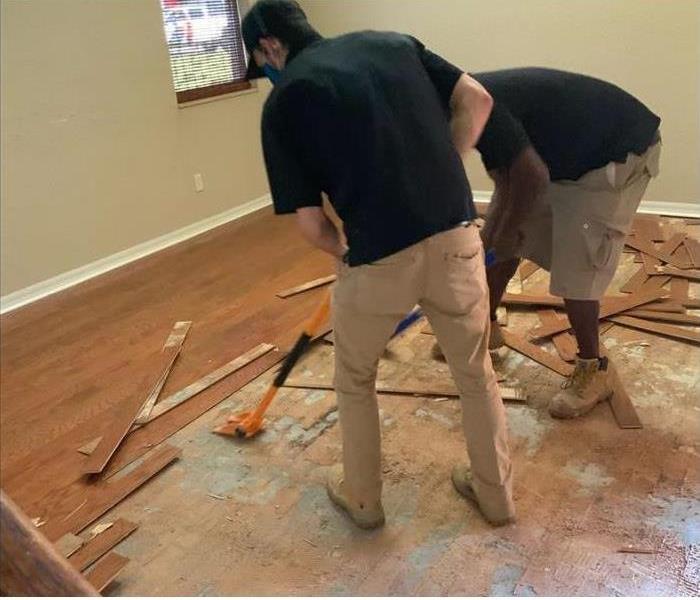What Does a Water Loss Mean for Your Hardwood Floors?
12/29/2021 (Permalink)
An unfortunate fact of hardwood flooring is that, once water damaged, it will quickly swell and buckle-leaving the floor lifted and uneven. Several factors determine whether water-damaged hardwood floors may be salvageable in a way that makes financial sense. Two of the most influential factors impacting its ability to recover are the severity and duration of water exposure.
For the best chance of restoring a hardwood floor after water damage, here are some contributing factors:
- The rapid removal of pooling water before it is absorbed is critical. This can be done by water damage professionals with wet/dry vacuums and powerful water extractors.
- Wood floors affected by water should be thoroughly scrubbed and sanitized before air-drying to mitigate the potential for mold contamination.
- Industrial dehumidifiers must be kept running 24 hours a day to reduce moisture content. High-volume air movers are also utilized to continuously circulate air and expedite drying.
- Moisture content reading of the wood must be taken at regular intervals to determine when the optimum moisture percentage is achieved.
We understand that flooding often comes quickly and unexpectedly, thereby causing extensive damage. That is why we are equipped and capable of offering mitigation, restoration, and reconstruction services for hardwood flooring with minimal to extensive damage.
SERVPRO of Vero Beach
772-770-0501






 24/7 Emergency Service
24/7 Emergency Service
